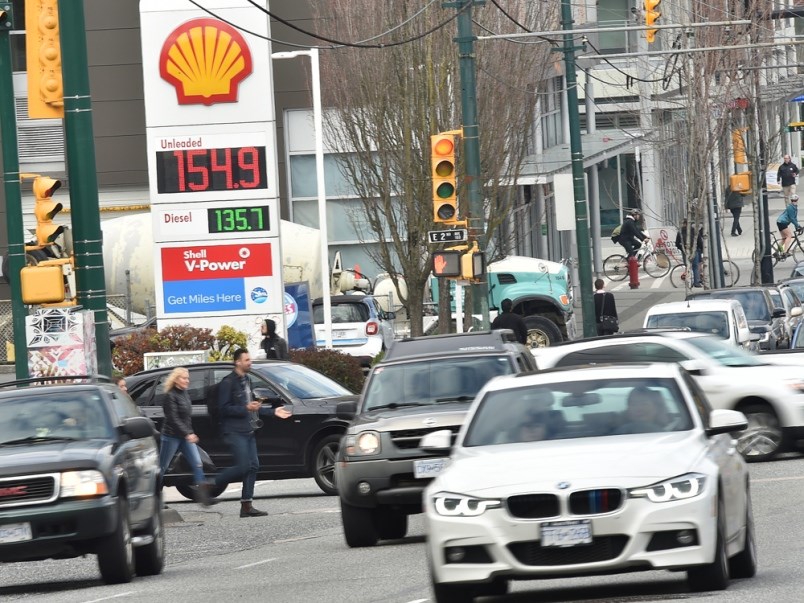May inflation hit British Columbians harder than consumers in other provinces, led by gasoline prices that were up nearly 23 per cent year over year, according to Statistics Canada.
The consumer price index (CPI) for both B.C. and Manitoba rose 2.7 per cent annually – the fastest rate in the country, after Saskatchewan (+3.0 per cent) – and above a national increase of 2.2 per cent.
In addition to a 22.9 per cent jump in gas prices – which follows a 14.2 per cent year-over-year rise in April – price increases for air transportation (+8.5 per cent), food from restaurants (+4.5 per cent) and mortgage interest (+3.8 per cent) contributed most to the 12-month change.
TD Bank senior economist James Marple commented in an investor note that outside of energy, price growth was fairly soft.
Energy prices rose 11.9 per cent in May on an annual basis, following a 6.3 per cent gain in April. Excluding energy, national CPI rose 1.6 per cent year over year, and decelerated April to May by 30 basis points.
“The data flow this week suggests little need for urgency from the Bank of Canada to raise interest rates,” wrote Marple.
“We expect just one more hike from the Bank of Canada this year, before it pauses to assess the state of a Canadian economy in the midst of a slowing housing market and ongoing trade uncertainty.”
Not all prices went up in May. A 7.1 per cent drop in the cost of telephone services and a 5.5 per cent decrease in natural gas prices in part weighed inflation down.
Month to month, Canadian CPI rose just 0.1 per cent on a seasonally adjusted basis.



